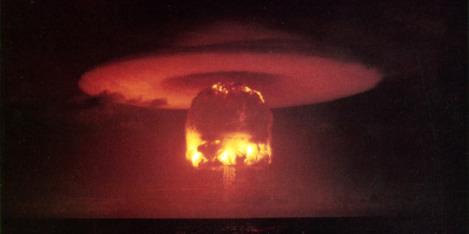Smoke from nuclear war would devastate ozone layer
Chuck Bardeen leads study on climate and UV effects
Atmospheric impacts of global nuclear war would be more severe than previously thought
The massive columns of smoke generated by a nuclear war would alter the world’s climate for years and devastate the ozone layer, endangering both human health and food supplies, new research shows.
The international study paints an even grimmer picture of a global nuclear war’s aftermath than previous analyses. The research team used newly developed computer climate modeling techniques to learn more about the effects of a hypothetical nuclear exchange, including complex chemistry interactions in the stratosphere that influence the amounts of ultraviolet (UV) radiation that reach the planet’s surface.
“In addition to all the fatalities that would happen almost immediately, the climate effects and the UV effects would be widespread,” said lead author Charles Bardeen, a scientist at the National Center for Atmospheric Research (NCAR). “These aren’t local to where the war occurs. They’re global, so they would affect all of us.”
Read more at UCAR News . . .
